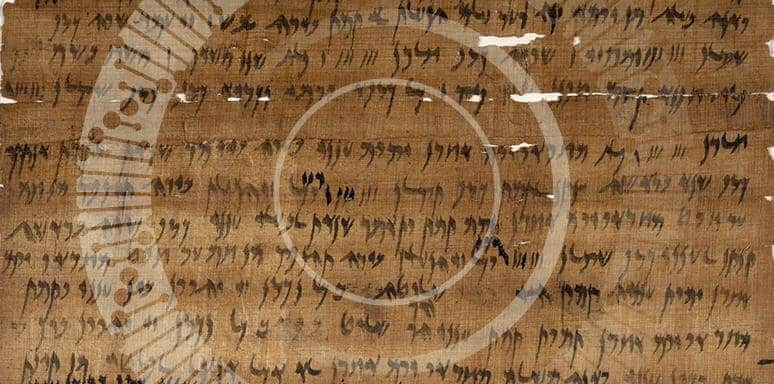Ancient papyri found on the XNUMXth island in Egypt, tell about the life of the Jewish community that existed there, about their customs and character

Ancient papyri found on the XNUMXth island in Egypt, tell about the life of the Jewish community that existed there, about their customs and character. In honor of Passover, Prof. Yigal Levin, Head of the Multidisciplinary Department of Jewish Studies, mentions the Jewish community in Biv, and tells about the ancient "Passover Tolls" found there.
19, also called "Elephantina" or "Elephant Island", is an island in the Nile River, near Aswan in Egypt, on the border of Sudan. Starting at the end of the 5th century, researchers began to find ancient papyrus documents, written in the Aramaic language, from which they realized that during the Persian period, in the 4th - XNUMXth centuries BC, Jews lived there. These Jews served in the Persian army and guarded the southern book of the Persian Empire.
Among the papyri found are letters, bills and personal documents of members of the community, including marriage certificates, freeing slaves, donation lists and more. From these documents it can be learned that on the island there stood a Jewish temple, known as "Beit Madvacha Zi Ela Shemya", where the Jews offered sacrifices to the god "Yahweh".
In one of the tolls, dated 419 BC, the Jews are ordered to do something on the 14th of Nisan, and to refrain from eating leaven from the 15th of Nisan until the 2nd of Nisan. The letter is fragmented, but it seems that there are instructions here, how to observe the Passover sacrifice and the holiday of unleavened bread. In another letter, from the year 407, the Jews turn to the Begohi governor of Judah and the sons of Sanballat, the governor of Samaria, and ask for their help in rebuilding the temple, which was destroyed by the priests in the temple of the Egyptian god Hanum, which stood close to the Jewish temple.
Since Hanum was depicted as a ram, it seems that the sacrifice of sheep and rams in honor of Passover upset the Egyptians, and they took advantage of a rebellion that broke out against the Egyptian government to destroy the Jewish temple. In another letter, the Jews promise that if the temple is rebuilt, they will sacrifice only frankincense and offering, not goats and sheep. It is not known when and under what circumstances this community was founded, nor is it known when and under what circumstances it was left. The Jewish community of XNUMX remains one of the great enigmas of ancient Jewish history.
More of the topic in Hayadan:
- The remains of the Ark of the Covenant and the platform of the Great Synagogue in Vilnius from the 18th century have been fully exposed
- Exodus: the unbelievable numbers
- Am Yisrael sings 7: The contribution of the Maccabees to music in the Temple
- Am Yisrael sings 8: the days of Herod and Agrippa - the music reaches its peak
